Disaster Recovery With Kafka Across the Edge and Hybrid Cloud
Learn about disaster recovery and resilient real-time data streaming enterprise architectures powered by Apache Kafka at the edge and hybrid multi-cloud.
Join the DZone community and get the full member experience.
Join For FreeI spoke at QCon London in April 2022 about building disaster recovery and resilient real-time enterprise architectures with Apache Kafka. This blog post summarizes the use cases, architectures, and real-world examples. The slide deck of the presentation is included as well.
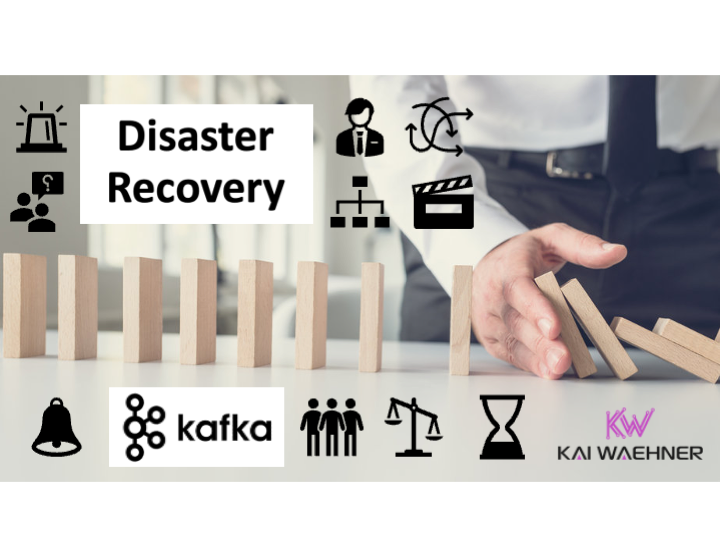
What Is QCon?
QCon is a leading software development conference held across the globe for 16 years. It provides a realistic look at what is trending in tech. The QCon events are organized by InfoQ, a well-known website for professional software development with over two million unique visitors per month.
QCon in 2022 uncovers emerging software trends and practices. Developers and architects learn how to solve complex engineering challenges without product pitches.
There is no Call for Papers (CfP) for QCon. The organizers invite trusted speakers to talk about trends, best practices, and real-world stories. This makes QCon so strong and respected in the software development community.
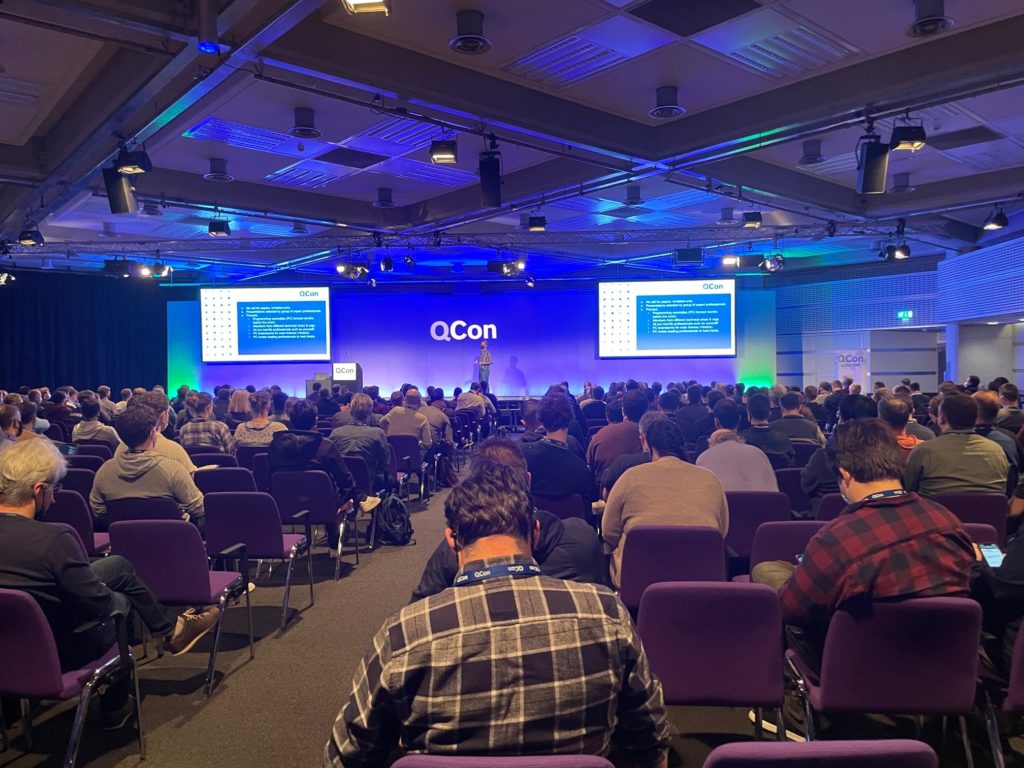
Disaster Recovery and Resiliency With Apache Kafka
Apache Kafka is the de facto data streaming platform for analytical AND transactional workloads. Multiple options exist to design Kafka for resilient applications. For instance, MirrorMaker 2 and Confluent Replicator enable uni- or bi-directional real-time replication between independent Kafka clusters in different data centers or clouds.
Cluster Linking is a more advanced and straightforward option from Confluent leveraging the native Kafka protocol instead of additional infrastructure and complexity using Kafka Connect (like MirrorMaker 2 and Replicator).
Stretching a single Kafka cluster across multiple regions is the best option to guarantee no downtime and seamless failover in the case of a disaster. However, it is hard to operate and only recommended (i.e., consistent, stable, and mission-critical) across distances with enhanced add-ons to open-source Kafka:
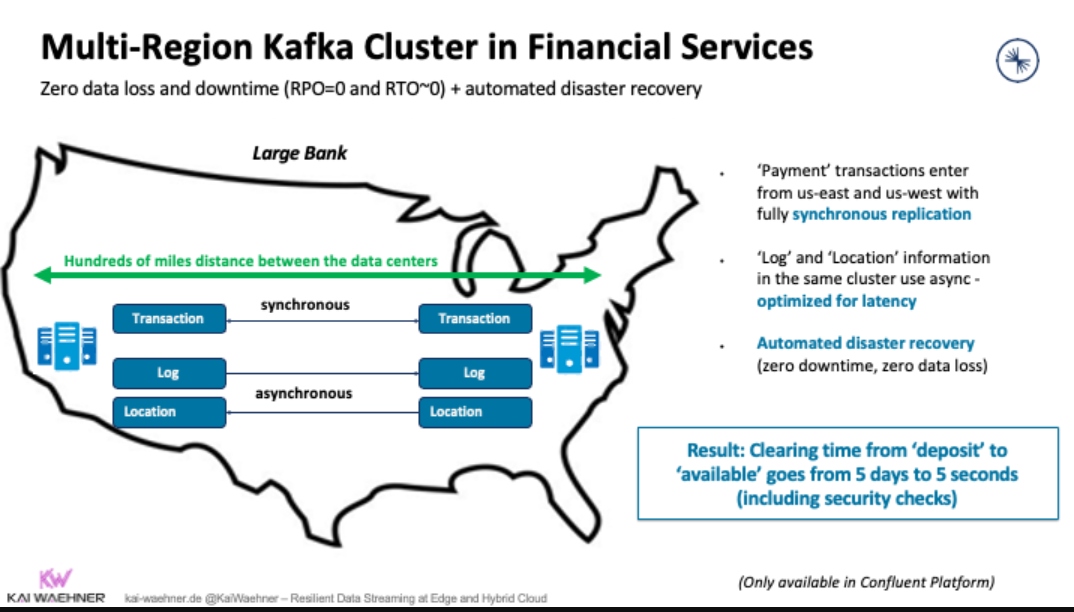
QCon Presentation: Disaster Recovery with Apache Kafka
In my QCon talk, I intentionally showed the broad spectrum of real-world success stories across industries for data streaming with Apache Kafka from companies such as BMW, JPMorgan Chase, Robinhood, Royal Caribbean, and Devon Energy.
Best practices explored how to build resilient enterprise architecture with disaster recovery with RPO (Recovery Point Object) and RTO (Recovery Time Objective) in mind. The audience learns how to get your SLAs and requirements for downtime and data loss right.
The examples looked at serverless cloud offerings integrating to the IoT edge, hybrid retail architectures, and the disconnected edge in military scenarios.
The agenda looks like this:
- Resilient enterprise architectures
- Real-time data streaming with the Apache Kafka ecosystem
- Cloud-first and serverless Industrial IoT in automotive
- Multi-region infrastructure for core banking
- Hybrid cloud for customer experiences in retail
- Disconnected edge for safety and security in the public sector
Slide Deck From QCon Talk:
Feel free to check out the slide deck of my presentation from QCon London 2022.
We also had a great panel that discussed lessons learned from building resilient applications on the code and infrastructure level, plus the organizational challenges and best practices:
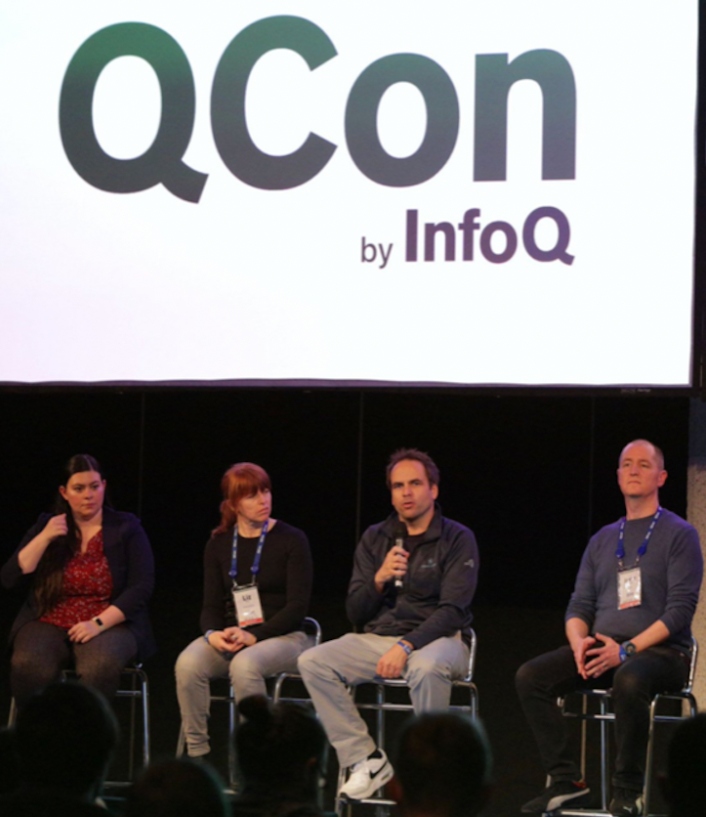
Video Recording From QCon Talk:
With the risk of Covid in mind, InfoQ decided not to record QCon sessions live.
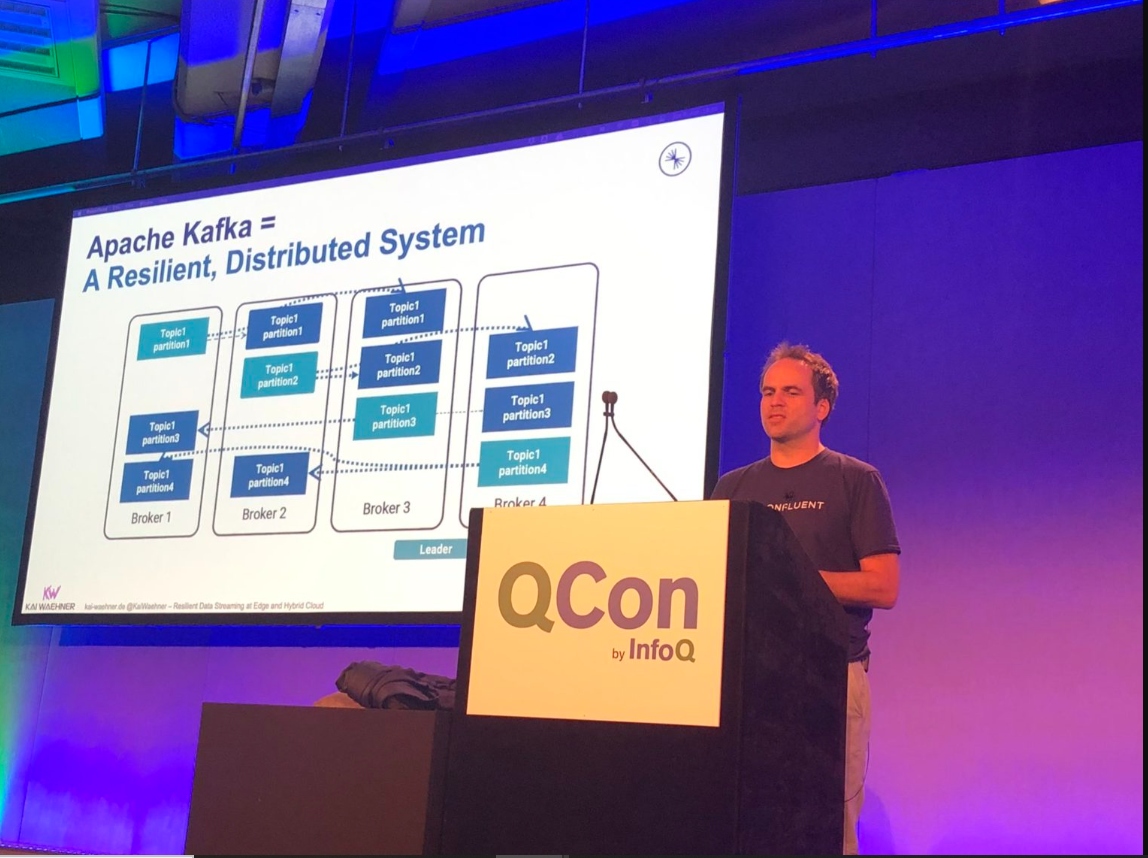
Instead, a pre-recorded video had to be submitted by the speakers. The video recording is already available for QCon attendees (no matter if on-site in London or at the QCon Plus virtual event):
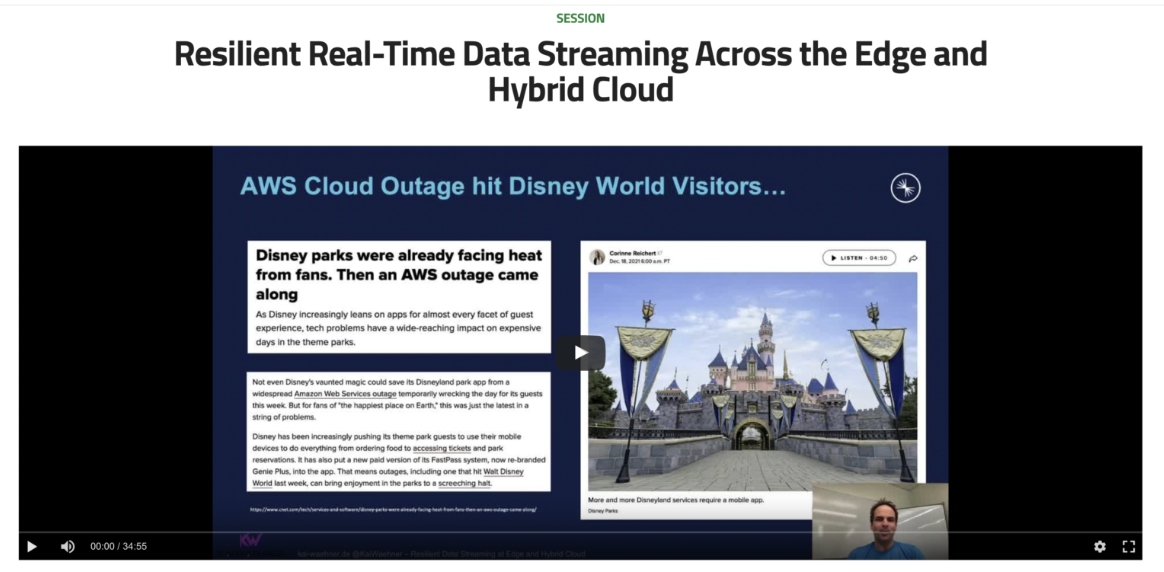
Qcon makes conference talks available for free sometime after the event. I will update this post with the free link as soon as it is available. An overview of the session/Q&A is available.
I hope you enjoyed the slides and video on this exciting topic. Hybrid and global Kafka infrastructures for disaster recovery and other use cases are the norm, not exceptions.
Published at DZone with permission of Kai Wähner, DZone MVB. See the original article here.
Opinions expressed by DZone contributors are their own.

Comments